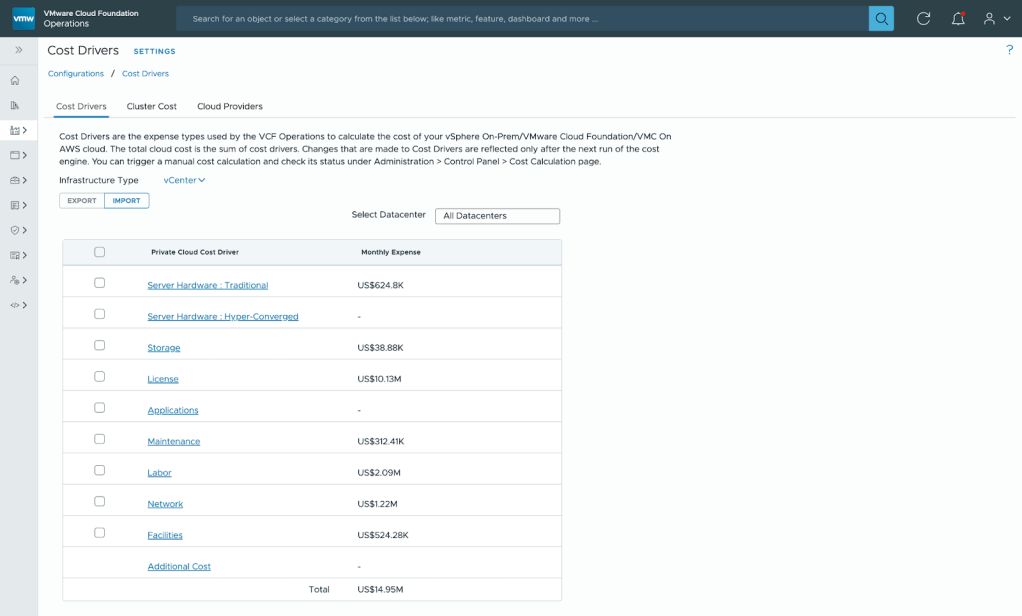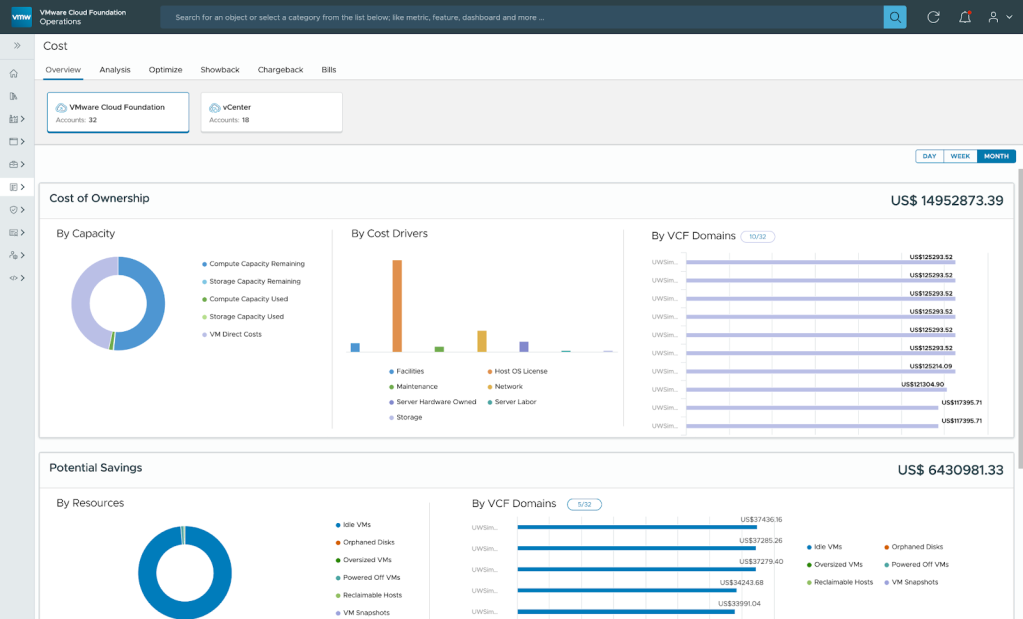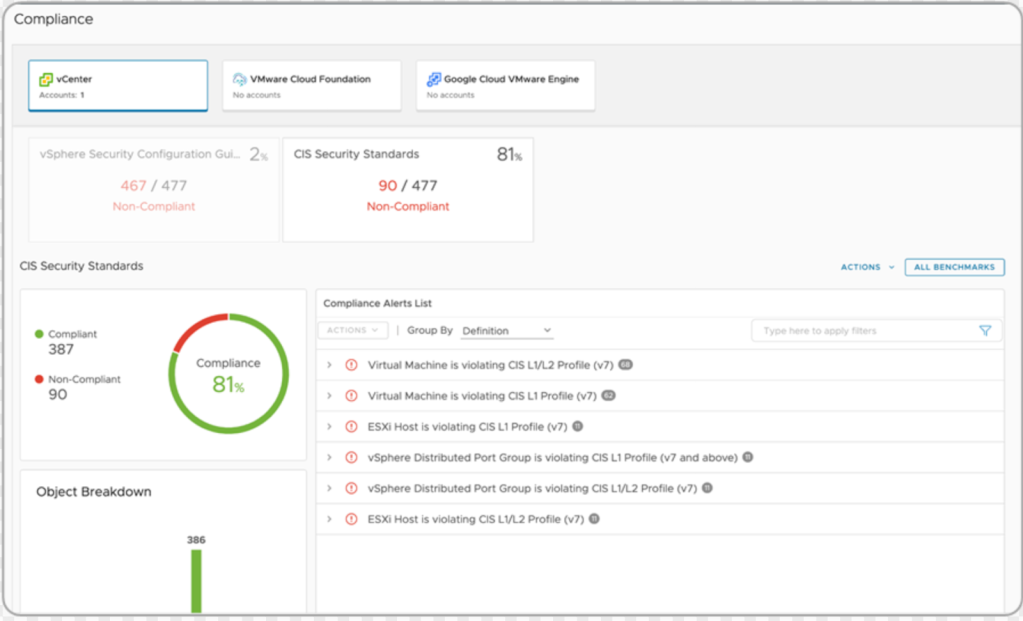Cloud is the cornerstone of enterprise IT strategy, delivering agility, speed, and scalability that transforms how businesses innovate. As organizations mature, many are now gravitating toward private and hybrid models for new initiatives. The drivers are clear: predictability, compliance, and ROI.
VMware Cloud Foundation (VCF) helps ensure cloud benefits by delivering not just virtualization and infrastructure management, but also integrated Kubernetes and private AI services built into the private cloud platform. With VCF Operations, enterprises simplify observability, diagnostics, capacity, cost, compliance management and much more.

Within this landscape, VCF stands out as a proven investment that delivers measurable financial and operational benefits.
Why Private Cloud?
1. Predictable Costs That Don’t Spiral
VCF helps eliminate unpredictable cloud bills. For many customers, egress fees, per-feature charges, and hidden add-ons typical in public clouds often lead to long-term cost overruns .
By contrast, private cloud offers predictable economics at scale:
- IDC found organizations running on VCF achieved a 564% ROI in 3 years and paid back investments in just 10 months (VMware ROI study by IDC).
- Bare metal might appear cheaper upfront, but it lacks elasticity and automation — driving higher OpEx as workloads grow.
- Costs remain far more predictable at scale

Figure 1: VCF Operations provides you visibility and control over your infrastructure expenses.
2. The Repatriation Wave
The trend is real: enterprises are moving workloads to private cloud (Private Cloud Outlook study by Broadcom).
- 53% say building new workloads in a private cloud is their top priority.
- 69% are moving, or considering moving, workloads back from public to private cloud.
- 92% trust private clouds for security and compliance.
- Nearly half believe > 25% of public cloud spend is wasted.
Why is it happening?
- Runaway Costs: Egress fees, data transfers, and per-service pricing make public cloud unpredictable. Private cloud restores cost visibility and FinOps control.
- Data Sovereignty: Increasing regulations drive the need for secure, compliant, local control
- Performance: Latency-sensitive and AI workloads often run faster and cheaper on-prem.
- Operational Control: Teams want transparency, governance, and automation — without losing agility.
Private and hybrid models now offer the best of both worlds — the control of on-prem and the flexibility of cloud — forming a smarter foundation for long-term growth.
3. More Value, Built Into a Platform
Public cloud often requires additional paid services—monitoring, automation, diagnostics, cost governance.
Private cloud stacks bundle these capabilities from the start:
- Automation and orchestration
- Logs, diagnostics, and monitoring
- Cost optimization and capacity planning
- Private AI-ready infrastructure

Figure 2: Overall TCO and optimization opportunities in VCF Operations
4. Improved Compliance and Control
For regulated industries, location and governance of data matter. Private and hybrid cloud models better assist in meeting GDPR, HIPAA, PCI, and other frameworks by allowing you to control where your data lives.

Figure 3: Compliance Overview in VCF Operations
IDC studies have also shown that enterprises in private cloud environments report 98% less unplanned downtime compared to public cloud (VMware ROI study by IDC).
Value of VMware Cloud Foundation
VMware Cloud Foundation (VCF) delivers a private cloud platform that helps enterprises cut costs, simplify operations, and continually demonstrate business value. By unifying compute, storage, networking, and security under one license, VCF reduces complexity and helps eliminate hidden costs.

Here’s what you can do with VCF:
1. Deploy a unified Private Cloud Platform
VCF consolidates infrastructure into a unified platform, combining compute, storage, networking, and security. This approach helps reduce CapEx by 30–40% compared to traditional infrastructure (Broadcom ROI study by IDC). Instead of stitching together multiple hardware and software layers, enterprises start with an integrated foundation that reduces complexity and cost from day one.
2. Automation and Operations to reduce labor
Provisioning, patching, and operations are streamlined by VCF Automation and VCF Operations, reducing manual IT work by up to 70% (Broadcom ROI study by IDC). This not only lowers OpEx but also accelerates time-to-market—helping enterprises deliver services in minutes instead of months. Unlike public cloud, which charges for managed services, automation in VCF is built-in and predictable.
3. Optimize Costs
VCF Operations provides a single console for monitoring, cost tracking, and optimization. Enterprises save through reclamation, rightsizing, planning, memory tiering, and network optimization. IDC studies found customers used 25% fewer VMs and 39% fewer servers, dropping VM costs by 35% over three years (Broadcom ROI study by IDC).
4. Stop Paying for Every Feature Added
With public cloud, every new requirement often means a new add-on, and with bare metal, third-party tooling is unavoidable. VCF changes that by including most capabilities within its license. Features like automation, optimization, and diagnostics come standard, eliminating the need for costly external software.
A common challenge with public cloud and bare-metal deployments is that the base platform rarely includes everything enterprises need. Features like storage, database services, automation, or AI frameworks often come as extra add-ons—each carrying its own cost and management overhead. Over time, this piecemeal approach makes environments more expensive and harder to operate.
VMware Cloud Foundation takes a different path. Many of the capabilities that would typically require separate licenses or third-party integrations are included as part of the platform itself. This creates a more predictable cost model and a smoother operational experience.
With VCF, enterprises get:
- Built-in Kubernetes support through VMware vSphere Kubernetes Service (VKS) that simplifies container adoption without additional tooling.
- Advanced network virtualization through NSX embedded into the platform, not purchased separately.
- Automation and operations tools that handle deployment, orchestration, performance, availability, logs, reporting, dashboarding, diagnostics, rightsizing, reclamation, optimization, FinOps, etc. natively.
- Private AI capabilities designed into the foundation, instead of bolted on afterwards.
- Integrated storage services for both file and object data, without needing separate vendor contracts and minimal cost for a topup.
- Database services delivered as an add-on for minimal pricing, rather than a costly managed add-on.
This holistic approach means organizations don’t just save on external tools—they also avoid the complexity of managing multiple contracts, vendors, and platforms. With VCF, value is integrated into the platform, making private cloud not only more cost-effective but also easier to run at scale.
5. Demonstrate ROI, Track Progress
VCF Operations makes cost management transparent. Real-time dashboards showcase consolidated metrics such as cost savings, breakeven points, and ROI trends. IDC confirmed enterprises using VCF achieved a 564% ROI over three years, with payback in just 10 months (Broadcom ROI study by IDC). This shifts IT from being a “cost center” to a function that can actively prove value.
6. Reinvest in Innovation
Once infrastructure is simplified and costs are reduced, resources can be reinvested in transformation. Freed IT and financial capacity can fuel initiatives like AI adoption, DevOps acceleration, or modernization of legacy workloads. VCF provides a scalable foundation for traditional, modern, and AI workloads, ensuring IT drives innovation—not just maintenance.
Conclusion: Scaling Smart with VCF

For enterprise-scale ROI, risk reduction, and better compliance, the evidence is clear:
- Private clouds are advantageous for long-term cost control and governance.
- VMware Cloud Foundation delivers on this promise with high ROI, low cost per VM, and less downtime, so customers can run their workloads better and with more control.
With VMware Cloud Foundation, private cloud becomes a strategic growth enabler. It reduces CapEx, slashes OpEx, avoids external tool sprawl, and provides measurable ROI that CIOs can demonstrate to the business—all while laying the groundwork for AI and future workloads.
Discover more from VMware Cloud Foundation (VCF) Blog
Subscribe to get the latest posts sent to your email.




